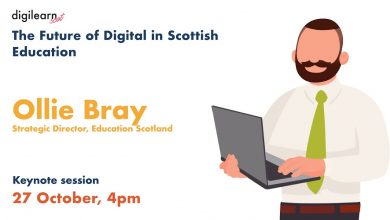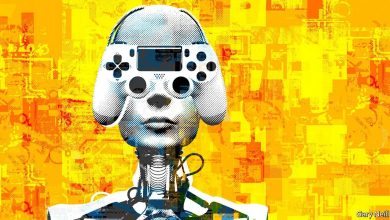Scottish Schools Pioneering the Eduverse – The Educational Metaverse
Scotland is trailblazing the virtual world future of Education.

 Highlighting the potential to create Metaverse environment’s for a variety of niche and vertical industry requirements, Avanti’s World from Avantis Education boasts the first for Education.
Highlighting the potential to create Metaverse environment’s for a variety of niche and vertical industry requirements, Avanti’s World from Avantis Education boasts the first for Education.
Styled and structured as a theme park Avanti’s World is split into lands, with various zones and learning scenes for students to explore independently. Every learning scene provides a fully immersive experience where students can discover, investigate and research as if they were there in person.
Take your students to places you would never imagine. From the moon, to inside a plant cell, Avanti’s World lets you explore the impossible, all from the safety of a ClassVR headset or web browser.
Each virtual reality land comes with a comprehensive set of educational resources to ensure you’re getting the most out of every lesson. Each learning zone and scene incorporates detailed subject information, 3D AR models and 360 images and videos to provide context to the student before exploration begins.
From VR content to engaging curriculum resources, Avanti’s World can be accessed via a secure website to give students everything they need to learn about a topic in the classroom or even remotely.
ESMS – Pioneering Experiential Learning
Pioneering Scottish schools are harnessing this technology to transform how they deliver 21st century Education
This includes ESMS, where Mr Simon Luxford-Moore, Head of eLearning, has a deep passion for teaching and importantly, for modernizing it to deliver the best learning experience for students. He was understandably recognised as one of the TES Edtech 50 leaders in 2020.
Mr Luxford-Moore explained how this adds a new category of learning modes. There is visual, auditory and kinaesthetic, and Simon defines ‘Experiential’ as a fourth, with quite profound implications and benefits for teaching.
He is passionate about inclusive learning, where if you design teaching to accommodate a neuro-diverse audience the minority of whom may have the most difficulties, from physical to mental challenges, it will be all encompassing, beneficial to all the students. VR offers a mode of engagement that addresses these challenges and removes barriers to learning in a way that traditional media cannot.
An example of an experiential lesson was a virtual tour of the Mecca pilgrimage, where students participated via VR in the Hajj, something that no non-Muslim can do. This is an excellent and simple example of fostering cultural and religious appreciation and understanding. The students also learned about rainforests through a VR tour and as one young pupil described it enables an experience “beyond the rectangle of a picture”.
Harnessing the Creator Economy
Simon reviewed a number of potential VR solutions for the school, settling on ClassVR because of one critical feature – the ability to create and upload one’s own content. Others could only make use of content pre-built by the supplier.
This is the key to unlock Scotland’s digital education future. Using advanced tools like Blender ClassVR can create sophisticated virtual tour content for schools, and being UK-based have been very responsive to Mr Luxford-Moore’s requirements, such as creating a castle siege scenario, even endorsing the flags with the school logo, but critically he can also create his own using simple 360 camera devices and enhancing it with tools like ThingLink.
For example he used this approach to create a virtual tour of New Lanark, closed to the public due to the pandemic, and has even shared tours of their own school, a historic Victorian building. They also act as a hub centre, where other schools who don’t have the technology can visit and make use of it.
The two biggest trends of the technology industry for the 21st century are ‘the Metaverse’ and the ‘Creator Economy’, an evolution of the Internet to a wholly immersive virtual world combined with the tools that enable everyone to create the experiences within it.
Scotland’s ambition to be a world-leading digital nation lies in harnessing these trends to transform our Education system, where schoolchildren are empowered to create learning content shared with other students, using the tools and technologies central to the future of the 21st century.
Critically it breaks down the barriers between public and private schools, creating a single playing field where investments and learning by one school is contributed to a shared pool from which all can benefit.
Forfar Academy
Another keynote exemplar is Forfar Academy, utilizing the technologies to involve students in building skills that will have huge value in the most modern of workplaces.
Therefore there are multiple benefits to this approach. It’s not only pioneering a state of the art learning approach for students, but it’s achieving what the Scottish Government’s overall goal is for their digital strategy: To put Scotland at the very forefront of technology in global terms.
As they highlight in their tweets below Forfar are leveraging the technology to expose students to knowledge about technology in new ways and crucially, engaging them into scenarios that have massive commercialization potential, such as building virtual tourism experiences or applying the technology in a business setting like a factory production facility.
This will equip them with skills and knowledge of immense value to Scottish businesses.
In our BGE we use @adskFusion360 to create 3D models and environments along side @ClassVR for immersive 360 experiences of factory visits to see skills in context. We also use @LEGO_Education EV3 for learning to code mechatronic systems to solve real world problems #VRARinEdu pic.twitter.com/AXpQjPZ7r9
— Forfar Acad Tech_Ed (@FATech_Ed) January 9, 2022



